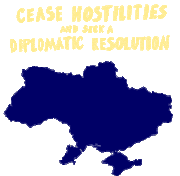|
Phlegmish posted:If the FSA loses out in the northwest, they've got nothing left except a few pockets near the Jordanian border, right? Nearly the entire opposition will be made up of jihadists. I wonder if ISIS is going to try to push into explicit al-Nusra territory as well. The FSA in the north wouldn't immediately collapse without their supply line, but it's likely that reaching that level of "oh poo poo, we've lost our supply line, we've got a problem" would lead to some sort of drastic intervention by both internal and outside groups aimed at re-establishing the supply line quickly. Turkey, Qatar, Saudi Arabia and many other entities backing the rebels would not just sit by and let ISIL destroy the northern FSA, and neither would the USA, to be honest. (The Ironic/Comedy option would be the northern FSA allying with the Afrin YPG to take back Azaz, and ending up with a second Euphrates Volcano-style group, because even though Turkey supports the FSA that's exactly what Turkey doesn't want to happen.) On ISIL vs al-Nusra, the area ISIL is pushing at used to be partially al-Nusra controlled, but al-Nusra withdrew from all the FSA areas in the "safe zone", because Turkey giving literal al-Qaeda access to the safe zone would be politically untenable for many (somewhat obvious) reasons. And the FSA in the south are actually the more moderate factions; I'd also call the areas they control more than just "pockets". Ironically the northern FSA are the more Islamist-linked and al-Nusra-linked ones, which is probably why the US has been less than willing to go along with Turkey's various plans/safe zones/no-fly zones, since the US would then be backing groups like Ahrar al-Sham.
|
|
|
|

|
| # ? Jun 7, 2024 06:24 |
|
Vernii posted:The Syrian Air Force is a complete joke, their AA network only slightly less. The only serious issue in that hypothetical would be the Russian reaction, and they wouldn't start a war with NATO over Syria. They wouldn't have to start a war. There's plenty of stuff they can do in roundabout ways, with diplomatic and economic pressure, to make life far more difficult for the US is they want to. For example, the Iran nuclear deal required cooperation from Russia. If we had told them to gently caress off and taken out Assad, they would not have been in a very cooperative mood for something like that.
|
|
|
|
Deteriorata posted:They wouldn't have to start a war. There's plenty of stuff they can do in roundabout ways, with diplomatic and economic pressure, to make life far more difficult for the US is they want to. Since when has Russia ever given a gently caress about earning US cooperation? Did they pick that up after invading Ukraine, or lying about its proxies shooting down civilian jet liners? Is it not fair to say that the US shouldn't have been in a cooperative mood for something like that due to Russia's unconditional support for Assad, who has openly aided jihadists who wish to kill American citizens? It's not the US' responsibility to bend over backwards to make deals with dictators and tyrants, especially at the expense of 300,000 dead and 10 million displaced. Volkerball fucked around with this message at 00:50 on Aug 18, 2015 |
|
|
|
Volkerball posted:Since when has Russia ever given a gently caress about earning US cooperation? Did they pick that up after invading Ukraine, or lying about its proxies shooting down civilian jet liners? Is it not fair to say that the US shouldn't have been in a cooperative mood for something like that due to Russia's unconditional support for Assad, who has openly aided jihadists who wish to kill American citizens? It's not the US' responsibility to bend over backwards to make deals with dictators and tyrants, especially at the expense of 300,000 dead and 10 million displaced. Way to completely miss the point. International diplomacy is complicated and there's lots of ways to get even with other countries short of outright war. Pretending that Russia would have just shrugged its shoulders and pouted if we'd taken out Assad unilaterally is exceptionally naive. Taking out Assad may have been worth it regardless, but would not have been without cost.
|
|
|
|
Deteriorata posted:Way to completely miss the point. Are you arguing that sacrificing Syria was a worthy cost in the aims of not antagonizing Putin? Or are you just pointing out that Putin would have been mad and made some phone calls that might have provided some minor inconveniences to the US or w/e, so outright war wasn't the only potential "cost" when it comes to Russian responses to US intervention in Syria? And if you're arguing the former, could you provide something of substance rather than the Iran Deal that the US absolutely needed in return for letting Syria burn?
|
|
|
|
Volkerball posted:Are you arguing that sacrificing Syria was a worthy cost in the aims of not antagonizing Putin? Or are you just pointing out that Putin would have been mad and made some phone calls that might have provided some minor inconveniences to the US or w/e, so outright war wasn't the only potential "cost" when it comes to Russian responses to US intervention in Syria? And if you're arguing the former, could you provide something of substance rather than the Iran Deal that the US absolutely needed in return for letting Syria burn? ...or we would have been stuck in another Iraq situation, where now Iran AND Russia decide to make the US bleed through an endless occupation while supplying any insurgents who ask for it meticulously crafted EFPs to kill American soldiers.
|
|
|
|
I think the main problems with bombing Assad in 2012 is that: It relies on an assumption that air power would have successfully removed him. It'd mean the U.S. would now "own" the outcome of the conflict and there would be pressure to commit further. It implies "moderates" would have taken power, and not Nusra or ISIS. I wouldn't assume this either.
|
|
|
|
Volkerball posted:Are you arguing that sacrificing Syria was a worthy cost in the aims of not antagonizing Putin? Or are you just pointing out that Putin would have been mad and made some phone calls that might have provided some minor inconveniences to the US or w/e, so outright war wasn't the only potential "cost" when it comes to Russian responses to US intervention in Syria? And if you're arguing the former, could you provide something of substance rather than the Iran Deal that the US absolutely needed in return for letting Syria burn? My argument isn't even with you, so I'm not going to let you turn it into one. My initial reply was to Vernii, that there were more issues to consider in international diplomacy than whether or not a country will go to war over a particular issue. Brinksmanship of that sort is how we got WWI.
|
|
|
|
Deteriorata posted:My argument isn't even with you, so I'm not going to let you turn it into one. My initial reply was to Vernii, that there were more issues to consider in international diplomacy than whether or not a country will go to war over a particular issue. Brinksmanship of that sort is how we got WWI. Yea I don't think there's much the Russians could do that would seriously impede American goals elsewhere (or degrade relations past a point significantly worse than reality). The Iran deal isn't a great example since since honestly the majority of the American public would be happier without it and all it's done is given the Republicans another foreign policy point to go after the Democrats with. e: I've always found the logic of "We'd better not antagonize [x] nation because they might do [y]" sort of odd, since international relations are a two way exchange and few posters in D&D ever seem to consider the reverse, that perhaps nation [X] won't antagonize us because we'll do [Y] in response. Russia gets away with the poo poo it does because it (correctly) assumes that NATO isn't willing to start a war over Ukraine, but likewise Moscow isn't going to be willing to start a war over Syria. Vernii fucked around with this message at 01:38 on Aug 18, 2015 |
|
|
|
Omi-Polari posted:I think the main problems with bombing Assad in 2012 is that: I think the strongest point for anti-intervention is that we simply didn't have a strategy to implement a stable post-war government. The FSA and the SNC were almost more theories than actual military bodies, much less groups ready to take over the reins of a country as bitterly divided as Syria. I guess you could make the argument that Assad is bad enough that the US could have taken a "stab" at invasion and occupation even if lead to the same result (it was and still is political suicide though). The most likely result would be a more embittered and violent version of Libya, just that Assad wouldn't be a faction but almost certainly everyone else including ISIS and al-Nusra would. That said, it is also unclear what would happen if a Libya type situation happened in Syria as far as civilian causalities all things considered. Also, it is very possible Russia/Iran would still have their own dog in the fight even if Assad was strung up by a mob.
|
|
|
|
Vernii posted:Russia gets away with the poo poo it does because it (correctly) assumes that NATO isn't willing to start a war over Ukraine, but likewise Moscow isn't going to be willing to start a war over Syria. Russia is completely willing to send in arms shipments though, just like the US is happy to arm the Ukrainians. Maybe the US wouldn't have been literally fighting Russians, but it would be cold comfort for the guys who'd have to slog through that particular boondoggle. I wasn't even particularly against an early NATO intervention into Syria, but don't deceive yourself by thinking that it would have been easy. Given the way that it has played out, there's every reason to believe that it would have resulted in yet another brutal proxy war between the US and Russia / Iran. Kaal fucked around with this message at 02:00 on Aug 18, 2015 |
|
|
|
Invicta{HOG}, M.D. posted:Exactly, so then what do we do? Continue to bomb ISIS as we are and let the rest of the country fight their civil war. Or, I guess, we'd also have to still be bombing Assad as well but we'd have to make sure that we were bombing them both the same because otherwise we'd have one side start winning. Or maybe we'd have to bomb one side more because it was winning and eventually enough bombs would lead to peace and reconciliation. Being "on the hook" for a situation in a foreign country is a dumb cop out argument that's only come about after Iraq, which is ironic, considering the original Iraq War plan was blanket abandonment as soon as Saddam was removed. That only changed when the plan became to install Maliki and form a functioning proxy government there. The US didn't stay in Iraq because it "had" to. It stayed because the government wanted to stay until Iraq stabilized under their man. Until the job was done. There's absolutely 0 argument to be made that some vague notion of responsibility demands action. It does not. Libya and Somalia '93, are both a fine case in point, where US forces said gently caress it and left the second the going got tough. Not to mention the '91 revolution in Iraq that was largely instigated by the US, but ignored completely by the US when the fighting began. That's not even getting into the subjective nature of "on the hook," as many would argue today that the US is already on the hook for a lot of what has happened in Syria despite not dropping a single bomb there over the revolution. So appealing to this notion that there's two poo poo scenarios A: where bad things are happening, and B: where bad things are happening but the US is responsible for it, where A is preferable, is naive. Even if somehow with US intervention and a hastened exit for Assad, we still ended up with a chaotic scenario where 300,000 were dead and 10 million people were left without a home (a laughable idea imo considering the vast, vast majority of every type of crime in Syria has been committed by the government and government back militias), it would have been perceived better if we had tried and failed rather than done nothing. Obviously it wouldn't have among white liberals in the west, but it would've in Syria and Iraq, and that's the important thing, since that's the base we want to disenfranchise from jihadist ideals, and the base that's actually dealing with the suffering. Recall what the Middle East looked like in 2011 when the Arab Spring was kicking off. There was a hope in the air that had not existed before. A hope that through peaceful protest and mass involvement by an entire population, that dictatorship could be overthrown. And that hope was yielding results. No poo poo results. That hope was a death blow for the jihadist argument, and as long as that hope existed, ISIS and it's ideological cohorts would continue to be forced into the shadows by a majority of people who viewed them as unnecessary and backwards. That hope should have been preserved at all costs, as ISIS, JaN, and friends, prey on the absence of hope. That preservation required US action. When people stood up in favor of democratic reform, the democratic world should have said "we will support you 100% on this," to inspire confidence that they could win, and provide the means for them to do so. Even if there were setbacks in that process, the US, if it acted in good faith, would've been responded to in good faith, as evidenced by Libya, who, until the US withdrew from the country and let it sink or swim, had a higher approval rating of the US than Canada did. This isn't rocket science. If 900,000 Rwandans were killed in a Rwanda where the world sat by and did nothing, and 900,000 Rwandans were killed in a Rwanda where Americans were standing by their side fighting Hutu militias and directly saving as many potential victims as they could, which one reflects better on the US from the Tutsi point of view? The West was absolutely capable of nurturing those Democratic aspirations in Syria, but it chose not to, which is something people tend to handwave away in favor of generalized, almost stereotypical arguments with little data. The US had little interest in getting deeply involved in the opposition in the early going, so the gap was filled by Qatar and KSA. This manifested itself in the SNC in both its iterations. Before everyone left the country, Moaz al-Khatib had larger poll support than Assad did in Syria, and he lamented often about how the SNC was co-opted by foreign interests. Eventually, he, and basically all of the native Syrians in the SNC, quit because their presence in the SNC was just being used to give legitimacy to a front for Qatar and KSA. The US didn't do a thing about it. So don't argue at me about how the opposition governments weren't legitimate, so the US couldn't act on their behalf, when the US didn't attempt to help create a representative opposition government out of the figures who were willing and able to lead it, and left its creation up to democratic beacons of freedom like Riyadh. It's self-fulfilling prophecy. Also, only half of Assad's air defenses were operational and most were junk in the early going, so it would be an overstatement to call it a small hurdle. Volkerball fucked around with this message at 03:29 on Aug 18, 2015 |
|
|
|
Volkerball posted:Being "on the hook" for a situation in a foreign country is a dumb cop out argument that's only come about after Iraq, which is ironic, considering the original Iraq War plan was blanket abandonment as soon as Saddam was removed. That only changed when the plan became to install Maliki and form a functioning proxy government there. The US didn't stay in Iraq because it "had" to. It stayed because the government wanted to stay until Iraq stabilized under their man. Until the job was done. There's absolutely 0 argument to be made that some vague notion of responsibility demands action. It does not. Libya and Somalia '93, are both a fine case in point, where US forces said gently caress it and left the second the going got tough. Not to mention the '91 revolution in Iraq that was largely instigated by the US, but ignored completely by the US when the fighting began. That's not even getting into the subjective nature of "on the hook," as many would argue today that the US is already on the hook for a lot of what has happened in Syria despite not dropping a single bomb there over the revolution. So appealing to this notion that there's two poo poo scenarios A: where bad things are happening, and B: where bad things are happening but the US is responsible for it, where A is preferable, is naive. Yes, you're right, they certainly would have greeted us as liberators, we would have Accomplished the Mission, we certainly wouldn't be stuck there for nearly a decade having a generation and a half of american soldiers mauled by insurgents, and my taxes sure wouldn't be paying for another handout to the MIC that will get shut down when the presidency flips political parties having accomplished nothing. Yep, the issues islamic extremists have with america is definitely the fact that we don't bomb the middle east enough, definitely not all the bombing we currently do and the tons of money we funnel into Israel and the SA. Listen guys, I know all those other times bombing people didn't go well, but we just didn't bomb them enough, or in the right way, or both. This is the Right War, and once we hit the Bombing Clit the shrapnel will fly out and knock a bunch of bricks into a schoolhouse and blonde haired blue eye christian children will run out of it waving american flags!
|
|
|
|
thanks caller.
|
|
|
|
Volkerball posted:Being "on the hook" for a situation in a foreign country is a dumb cop out argument that's only come about after Iraq, which is ironic, considering the original Iraq War plan was blanket abandonment as soon as Saddam was removed. That only changed when the plan became to install Maliki and form a functioning proxy government there. The US didn't stay in Iraq because it "had" to. It stayed because the government wanted to stay until Iraq stabilized under their man. Until the job was done. There's absolutely 0 argument to be made that some vague notion of responsibility demands action. It does not. Libya and Somalia '93, are both a fine case in point, where US forces said gently caress it and left the second the going got tough. Not to mention the '91 revolution in Iraq that was largely instigated by the US, but ignored completely by the US when the fighting began. That's not even getting into the subjective nature of "on the hook," as many would argue today that the US is already on the hook for a lot of what has happened in Syria despite not dropping a single bomb there over the revolution. So appealing to this notion that there's two poo poo scenarios A: where bad things are happening, and B: where bad things are happening but the US is responsible for it, where A is preferable, is naive. Or maybe you just would've brought the civil war into a new phase where US forces end up being shock troops for the Sunni Cause. The Liberian Civil War, for example, did not end with the end of Doe. The FSA was just a bunch of rich guys looking to be the first to sell out the oil and everything else. They would've won had they any proletarian spirit. Panzeh fucked around with this message at 04:34 on Aug 18, 2015 |
|
|
|
Deteriorata posted:They wouldn't have to start a war. There's plenty of stuff they can do in roundabout ways, with diplomatic and economic pressure, to make life far more difficult for the US is they want to. I don't think this is a great example because the Russians have already used what little influence they had on the deal to undermine the P5+1 position. This would include doing things like in November of last year announcing that they were going to build 2-6 additional reactors at Bushehr, an announcement that may or may not have had an effect on the Vienna negotiations, which ended up missing its November 24th deadline. Iran wants to be exporting over 2 million barrels a day once the sanctions come off. This is great for China (which has invested heavily in Iranian oil and gas), and bad for Russia, but because of how isolated they are after their actions in Ukraine, Russia has to be cooperative when it comes to what China wants, Assad or no Assad. Incidentally, the Russians have made the best of their bad situation. The Russians pushed as hard and possibly even harder than the Iranians for the conventional arms embargo to come off. You can guess why. As it turns out, in the final deal the conventional arms embargo stays on for 5 more years- but with a catch: UNSC members can permit select arms sales. So, Russia's contribution to the Iran Deal was obtaining a legal monopoly on Iranian arms purchases. Good job Lavrov.
|
|
|
|
Volkerball, don't you see any contradiction at all between condemning Russia as a belligerent power we shouldn't be worried about working with because they illegally invaded a country friendly to the US in Ukraine while advocating for the US to illegally overthrow the government of a country friendly to Russia in Syria? I'm not saying the two situations are the same, since clearly Assad is a monster and Ukraine doesn't deserve what's happened to it, but illegal wars of choice are bad precisely because they make it more difficult to plausibly stand on principle when saying might should not equal right in affairs between states. If the US could plausibly make Syria all better again by bombing the gently caress out of it, maybe it would be worth risking the cascade effects of continuing to chip away at state sovereignty, but when you throw in the reality that our track record is very poor at making situations better by blowing poo poo up, maybe upholding the international order doesn't look so bad. I know you like to believe there was a window in which true liberal democracy could have flourished in Syria if only the West had been willing to impose it, but the track record of liberals triumphing over radicalism in times of crisis is also very poor. Iran was in a far better position to become a liberal society in 1979, but that very clearly didn't happen. Egypt has been a disappointment more recently, as has, of course, Iraq. Even in the best case, Syria would still have been a country divided by ethnic and sectarian differences, and expecting a new government to be able to peacefully paper those over while terrorist groups and hostile foreign powers would be working to destroy this fantasy you envision is absurd. Maybe you're right that the West encouraged rebellion only to abandon it later, but the problem there was meddling in the first place, not the later refusal to stand by a foolish commitment and contribute further to the chaos.
|
|
|
|
Dilkington posted:I don't think this is a great example because the Russians have already used what little influence they had on the deal to undermine the P5+1 position. This would include doing things like in November of last year announcing that they were going to build 2-6 additional reactors at Bushehr, an announcement that may or may not have had an effect on the Vienna negotiations, which ended up missing its November 24th deadline. I agree, it wasn't a great example, but the best I could think of as a recent thing that we needed Russian cooperation with. A much better example would have been the US's involvement in Afghanistan after the Soviets invaded. We didn't declare war on the Soviets, be we sure did everything we could to create a big pile of dead Russians while they were there. Russia would have no qualms in returning the favor if we unilaterally took out a client state that had been loyal to them since the early years of the Cold War.
|
|
|
|
All of the Syrians, even at the very beginning, knew that there would be 2 civil wars: one between Assad and everyone else, and one between the moderate/secular forces and the Islamists. They all talked about it being inevitable before the infighting even broke out. They had assumed that the moderates and Islamists would cooperate until Assad was toppled then go at it like in Libya. They just couldn't wait that long.
|
|
|
|
fade5 posted:The longer it takes to remove/kill Assad, the more Syria looks like what it does currently today. Actually removing Assad would probably lead to Libya-style factional fighting, but it's definitely possible that the overall death toll/number of refugees would still be less than the 330,000 dead, 3 million refugees, 6.5 million internally displaced people that Syria's currently at, especially since the Civil War shows no signs of ending anytime soon. Syria would definitely still be a clusterfuck, but without Assad there likely wouldn't be the thousands of organized Barrel Bomb droppings on schools/markets/bakeries/other civilian areas, as one example. On the other hand, it's not hard to see it being worse - one thing about the current civil war is that the front lines between Assad and the rest are actually fairly stable. Sure, he's lost a chunk here and there, and solidified his centre, but the areas of hard fighting and primary frontlines are pretty much where they were three years ago, literally so in places like Aleppo. Some of the main population centres - Damascus city, the Mediterranean coast, Hama, most of Homs city, have been reasonably peaceful (obviously reasonable is very relative). Likewise Raqqa, etc. If the US had toppled the government and then said to the rebels 'ok guys, here you go - remember, strongest and most ruthless wins! have fun.' it could have been a bloody free for all, all over. When the fighting is truly neighbourhood vs neighbourhood, village vs village, it wouldn't take long to get over 300,000. Also, I don't really know why everyone expects the US in particular to do something and lets every other country off the hook. Sure, the US has a habit of preaching and meddling, but so does Turkey, so does Saudi Arabia, and they actually have real-politic reasons to intervene, unlike America. Either one (well, Turkey anyway) had the military force to topple Assad if they wanted, but again they just snipe endlessly at America for not doing anything, (whilst doing everything they can to strengthen the Islamists et al).
|
|
|
|
The KRG judiciary has cleared the way for another two year extension of Barzani's presidential term, that will make it 8 years without a popular election. Parliament votes tomorrow, if he's successful I wonder if (in the current climate of anti corruption protests elsewhere in Iraq) well see another wave of Gorran lead popular protests.
|
|
|
|
Also the Iraqi parliament has referred the Mosul report to the judiciary for possible prosecutions. Maliki may indeed be in a spot of bother. Also, Najafi who has also been named in the report.
|
|
|
|
kustomkarkommando posted:The KRG judiciary has cleared the way for another two year extension of Barzani's presidential term, that will make it 8 years without a popular election. This attire is not an effective blending of cultural influences. 
|
|
|
|
Barzani earns more as president of the KRG in a month than the US president earns in a year.
|
|
|
|
Sinteres posted:Volkerball, don't you see any contradiction at all between condemning Russia as a belligerent power we shouldn't be worried about working with because they illegally invaded a country friendly to the US in Ukraine while advocating for the US to illegally overthrow the government of a country friendly to Russia in Syria? I'm not saying the two situations are the same, since clearly Assad is a monster and Ukraine doesn't deserve what's happened to it, but illegal wars of choice are bad precisely because they make it more difficult to plausibly stand on principle when saying might should not equal right in affairs between states. Not at all. Legal and illegal are subjective when it comes to this type of action, due to the way the UNSC works. There's clear video evidence on a massive scale of the regimes war crimes, which provide more than enough to support invoking R2P. Sovereignty is forfeited by illegitimate rulers who massacre their own people. Russia has consistently prevented a UNSC resolution from going through, and they've done so through outright lies about what the regime is doing. But that's not representative of the global consensus. A February 2012 general assembly vote on a resolution that "condemned President Bashar al-Assadís unbridled crackdown on an 11-month-old uprising and called for his resignation under an Arab League peace proposal to resolve the conflict," passed 137-12 with 17 abstaining. There was more than enough for the US to point to when it comes to taking action in Syria. Contrast that with Russian justification for Ukraine, which, lol. Volkerball fucked around with this message at 15:38 on Aug 18, 2015 |
|
|
|
Volkerball posted:Not at all. Legal and illegal are subjective when it comes to this type of action, due to the way the UNSC works. There's clear video evidence on a massive scale of the regimes war crimes, which provide more than enough to support invoking R2P. Sovereignty is forfeited by illegitimate rulers who massacre their own people. Russia has consistently prevented a UNSC resolution from going through, and they've done so through outright lies about what the regime is doing. But that's not representative of the global consensus. A February 2012 general assembly vote on a resolution that "condemned President Bashar al-Assadís unbridled crackdown on an 11-month-old uprising and called for his resignation under an Arab League peace proposal to resolve the conflict," passed 137-12 with 17 abstaining. There was more than enough for the US to point to when it comes to taking action in Syria. Contrast that with Russian justification for Ukraine, which, lol. You basically just said intervening would be legal because the mechanism established to decide if a war is legal or not refused to say intervening would be legal; R2P isn't a legal principle so much as it is an excuse to say our values are more important than international law. China would almost certainly veto a Security Council resolution too, so this isn't just about Russia either. As I said before, maybe I'd be on board with continuing to destabilize the (admittedly broken) international order if the evidence suggested that we're capable of creating a better world through force, but there's every reason to believe we aren't and that continuing to add precedent to the idea that powerful states are free to start wars of choice when they feel like it is a bad idea for the status quo global power.
|
|
|
|
Invicta{HOG}, M.D. posted:This sounds good (in theory, maybe not easy in practice) but I was responding to your call to "bomb Iraq and Syria" and I'm not sure who you'd be bombing in 2012. Oh, I never said that. But we should have more properly engaged with what was happening in Syria in 2012. Because, for all intents and porpoises, we were always going to be linked to it and circling back anyway, no matter how many people in the US might not want to. EDIT: Oh I see where the mistake happened, my writing was unclear. What I meant to say was that INSTEAD of bombing Iraq and Syria, we should have used that money to more engage with both countries using non-military means.
|
|
|
|
Shageletic posted:Oh, I never said that. But we should have more properly engaged with what was happening in Syria in 2012. Because, for all intents and porpoises, we were always going to be linked to it and circling back anyway, no matter how many people in the US might not want to. Haha, that one word makes a big difference. Volkerball posted:There's clear video evidence on a massive scale of the regimes war crimes, which provide more than enough to support invoking R2P. Sovereignty is forfeited by illegitimate rulers who massacre their own people. Shouldn't we invade North Korea? The death toll there is orders of magnitude higher than Syria.
|
|
|
|
Shageletic posted:
Maybe whoever received that money could bribe their guards into granting a quick death instead of of months of torture and starvation in the Mukhabarat jails.
|
|
|
|
Invicta{HOG}, M.D. posted:Shouldn't we invade North Korea? The death toll there is orders of magnitude higher than Syria. Crimes of a regime always serve as a excellent justification for war, but are rarely the actual motivation. It's always a question of interest, and I don't see how acting militarily in Syria would have ever furthered our interests in the region unless I view the situation through the lens of an idealist. Speaking of which, what is President Obama's approach to international relations and Middle Eastern foreign policy? It seems as though he speaks through an idealist lens, holds back due to realist concerns and acts through liberalism. If.viewed this way, I think it explains the inconsistencies in the American regional policy, especially after the stark idealism of Bush.
|
|
|
|
Bait and Swatch posted:Crimes of a regime always serve as a excellent justification for war, but are rarely the actual motivation. It's always a question of interest, and I don't see how acting militarily in Syria would have ever furthered our interests in the region unless I view the situation through the lens of an idealist. I would replace "holds back due to realist concerns" with "averse to commiting political suicide by getting his nation into a new war" but close enough.
|
|
|
|
What sort of political suicide could he get into at this point? He'll never face another election for anything ever again.
|
|
|
|
about the only thing that might jeopardise hillary's election in 2016 is obama getting into a ground war in the middle east
|
|
|
goose fleet posted:What sort of political suicide could he get into at this point? He'll never face another election for anything ever again. His actions have ramifications for his party for succession and downticket races.
|
|
|
|
|
Ikasuhito posted:I would replace "holds back due to realist concerns" with "averse to commiting political suicide by getting his nation into a new war" but close enough. Also maintaining his vaulted "legacy."
|
|
|
|
Ikasuhito posted:I would replace "holds back due to realist concerns" with "averse to commiting political suicide by getting his nation into a new war" but close enough. The discussion goes beyond the simplistic "war or no war" idea of foreign policy though. The hesitancy to expend anything more than minimal resources (not just military) and political capitol are often notable in many cases, especially given the rhetoric that presages American inaction. It would make sense to largely ignore the turmoil if there did not seem to be an intent to be involved on Washington's part. Additionally, the desire to not be drawn into conflict is not entirely accurate given Libya, Yemen and Iraq. The common pattern I have seen is early statements that suggest heavy American involvement, followed by limited follow-through that usually occurs as part of a broader coalition of states. This extends beyond military action, as there has been limited application of soft-power (Iran is the exception) since the Arab Spring, which had the potential to accomplish quite a bit given the credibility of President Obama in the Arab world when the protests first kicked off.
|
|
|
|
Sinteres posted:You basically just said intervening would be legal because the mechanism established to decide if a war is legal or not refused to say intervening would be legal; R2P isn't a legal principle so much as it is an excuse to say our values are more important than international law. China would almost certainly veto a Security Council resolution too, so this isn't just about Russia either. As I said before, maybe I'd be on board with continuing to destabilize the (admittedly broken) international order if the evidence suggested that we're capable of creating a better world through force, but there's every reason to believe we aren't and that continuing to add precedent to the idea that powerful states are free to start wars of choice when they feel like it is a bad idea for the status quo global power. The UNSC was not established to decide if a war was illegal or not. It was established to provide a mechanism for peaceful interactions between major world powers to prevent larger disputes from breaking out. When it comes to a politically toxic issue, the UNSC becomes paralyzed. "Legality" isn't based on a set legal framework. It's based on what's convenient to the largest nations in the world given the particular situation in question. The argument here boils down to whether you think Assad is the legitimate leader of Syria, and as such, has sovereignty which must be respected. The vast majority of the world says this is not the case, and I don't think anyone with the least bit of a sense of the importance of human rights would disagree. That's good enough for me. Invicta{HOG}, M.D. posted:Shouldn't we invade North Korea? The death toll there is orders of magnitude higher than Syria. No, because not all of the criteria has been met. The DPRK hasn't hit a point of critical mass. There's no organized opposition that is in open revolt. You can't barge in and create a civil war in a foreign nation and expect people to join in with you. You have to come in on the side of a populace that's already fighting against the oppressive government. If that happened, absolutely the US should support the uprising with the force necessary to bring about a faster resolution to the conflict.
|
|
|
|
"UNSC was not established to decide if a war was illegal or not. It was established to provide a mechanism for peaceful interactions between major world powers to prevent larger disputes from breaking out." Which is why R2P was a mistake, it undermines this extremely crucial mechanism.
|
|
|
|
I actually believe it should be the other way around; the security council is inherently flawed because it includes regimes that are already violating human rights in mass scale, whereas R2P is a great concept and should be a clear legal definition and an independent branch of the UN makes decisions that the UN members must adide by to remain a member. The UNSC is just a way for major powers to politik and hasn't prevented any escalations including Syria and Ukraine, because of course it won't when opposed super powers have vested interests in those regions.
|
|
|
|

|
| # ? Jun 7, 2024 06:24 |
|
uninterrupted posted:Also maintaining his vaulted "legacy." Being a slow moving centrist might actually be what Obama wants to be.
|
|
|

































